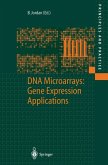This book explores the importance of Single Nucleotide Polymorphisms (SNPs) in biomedical research. As SNP technologies have evolved from labor intensive, expensive, time-consuming processes to relatively inexpensive methods, SNP discovery has exploded. In terms of human biology, this research, particularly since the completion of the Human Genome Project, has provided a detailed understanding of evolutionary forces that have generated SNPs. It also has shown how SNPs shape human variation. The ability to inexpensively generate and analyze vast amounts of genetic data is poised to transform our understanding of human evolution and biology. "Single Nucleotide Polymorphisms" covers a broad survey of SNPs and their classification into synonymous and non-synonymous; the role of SNPs in human disease; case studies providing specific examples of synonymous and non-synonymous SNPs associated with human diseases or affecting therapeutic interventions; mechanisms by which synonymous mutations affect protein levels or protein folding which affect human physiology and response to therapy; and the role of SNPs in personalized medicine. Understanding what SNPs are, how they have been shaped is necessary for an increasingly expanding audience. This research will revolutionize the future of medicine. Chapter 4 is available open access under a Creative Commons Attribution 4.0 International License via link.springer.com.
SNPs Ability to Influence Disease Risk: Breaking the Silence on Synonymous Mutations in Cancer" is available open access under a Creative Commons Attribution 4.0 International License via link.springer.com.
Dieser Download kann aus rechtlichen Gründen nur mit Rechnungsadresse in A, B, BG, CY, CZ, D, DK, EW, E, FIN, F, GR, HR, H, IRL, I, LT, L, LR, M, NL, PL, P, R, S, SLO, SK ausgeliefert werden.









